Following Emmanuel Macron’s victory in the French runoff, Constanze Stelzenmüller explains why the centrist candidate’s triumph, combined with a conservative victory in a German regional election, could bode well for Angela Merkel’s re-election chances in September. This piece originally appeared in The Washington Post.
Emmanuel Macron’s victory in the French presidential elections and a conservative upset win in a bellwether German regional election, both on Sunday, have produced an unexpected third winner: Angela Merkel.
Germany’s chancellor, who is aiming for a fourth term in the September 24 elections, has had a hard three years. Russia’s annexation of Crimea in 2014, its support of violent separatism in Ukraine, and its constant probing of European vulnerabilities sapped a lot of Berlin’s energies. Then there was the arrival of nearly a million refugees, many of whom were from Syria, in 2015, which fueled public anxiety and an upstart right-wing party, the Alternative for Germany (AfD). The Brexit referendum in June 2016 robbed Merkel of an important ally in the European Union.
Last November, the United States elected a president who takes a much dimmer view of Europe and Germany than his predecessor. The rise of the anti-E.U., anti-euro, and anti-immigrant National Front in France and its candidate Marine Le Pen seemed to challenge the European project itself.
To top it all, in March Merkel’s junior coalition partner—and election adversary—the center-left Social Democrats (SPD) nominated a surprisingly popular challenger, the former president of the European Parliament Martin Schulz. His only governing experience in Germany consists of having been the mayor of a small town on the Franco-German border for a couple of years. Yet polls showed him running neck-and-neck with the “leader of the free world” for weeks.
Adversaries in her own center-right Christian Democratic (CDU) party were darkly muttering “MMW” (short for “Merkel Muss Weg,” or Merkel must go) to each other as a greeting. It looked as though the famously indestructible chancellor—who had pondered for months whether to run again—might be a spent force at last.
The outlook for Merkel brightened up somewhat when the tiny West German state of Saarland reelected an ally of the chancellor in late March—ending a long string of state losses for Merkel’s party and a worrying series of double-digit AfD victories, peaking at a stunning 24.6 percent in one state election.
Sunday’s two votes could just turn the tide. Macron will—or so Berlin hopes—revive the French economy and share the burden of leading and reforming the European Union. The former is a tall order by any measure, and Macron and Merkel disagree on important questions of E.U. reform, such as debt mutualization. Still, what counts is that the new French leader admits his country’s problems, is a passionate European and wants to work with Germany.
The other election victory in Schleswig-Holstein, Germany’s bicoastal northernmost state, was a pleasant surprise for Merkel. Her CDU, which had been in opposition, achieved a clear win at 32 percent of the vote, while the incumbent SPD did far worse than forecast at 27.2 percent. The AfD barely scraped across the threshold at 5.5 percent.
Personal and regional reasons played a role. Traditional voters in the affectionately nicknamed “Schläfrig” (Sleepy) Holstein were deeply unamused when their Social Democrat Chief Minister Torsten Albig announced he was separating from his wife because child-rearing duties had sadly rendered her unfit for interesting conversation. His CDU opponent Daniel Günther is just the kind of young(-ish) politician Merkel likes: a 43-year-old long-distance runner who worked his way up quietly and proved his mettle addressing local concerns such as education, traffic and the lack of broadband.
But—and national opinion polls have been confirming this for months—as in the Dutch and French national elections, German voters too are now hewing to the mainstream again.
Also, the “Schulz effect” may have played itself out. Merkel’s challenger answered to the desire for a centrist alternative to the chancellor, who has been in power for almost 12 years. But the SPD’s campaign focus on inequality clearly doesn’t speak to a German electorate that feels it is quite well off, yet worries about public safety and political stability.
Schleswig-Holstein is a small state, housing only about 2.8 million of Germany’s more than 81 million inhabitants. But its elections are an important bellwether for the national elections because it will be a laboratory for the coalition calculus that might play out at the national level should Merkel win again in September.
The Greens and the liberal Free Democratic Party (FDP), which had been pronounced near-dead at the national level, made a strong comeback at 12.9 and 11.5 percent, respectively. In Schleswig-Holstein, either the front-runner CDU or the defeated SPD could form a government—but only with both the Greens andthe FDP. The likely winner will be Merkel’s man, as the FDP has already excluded working with the Social Democrats. After two “grand” CDU-SPD coalitions presided over by Merkel (2005-2009 and 2013-now), a “Jamaica” partnership (so called because of the black-green-yellow colors of the parties) between the CDU, the Greens and the FDP is appealing to many modern conservatives. They will try hard to make it work in the north.
Meanwhile, Merkel has one more regional test to pass before the nationwide vote: the May 14 vote in North Rhine-Westphalia, Germany’s most populous state. Its SPD chief minister is popular, but her state is in trouble—the tabloid Bild has called it the “Greece of Germany.” If the conservatives win there on Sunday, this political hat trick would be a huge confidence booster for Merkel—and just might carry her all the way to a victory in September.
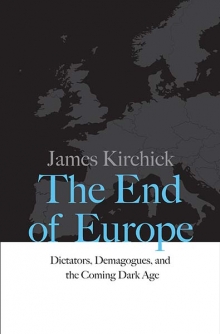

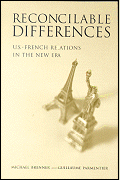
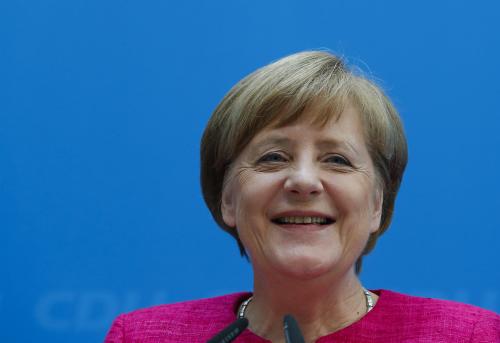
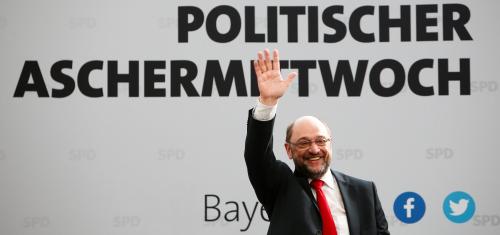
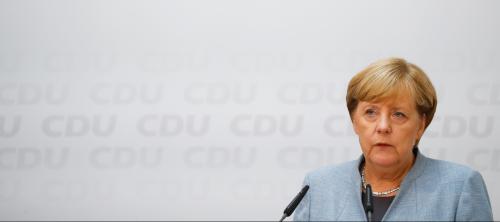

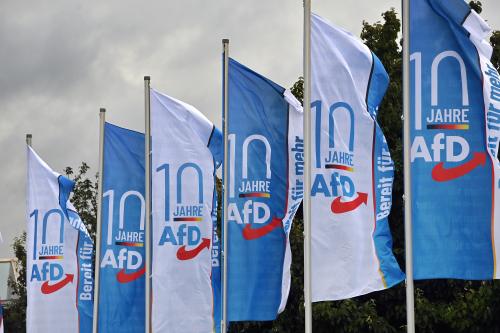
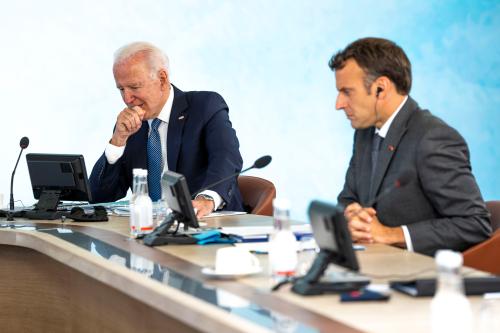
Commentary
The comeback of Angela Merkel
May 12, 2017